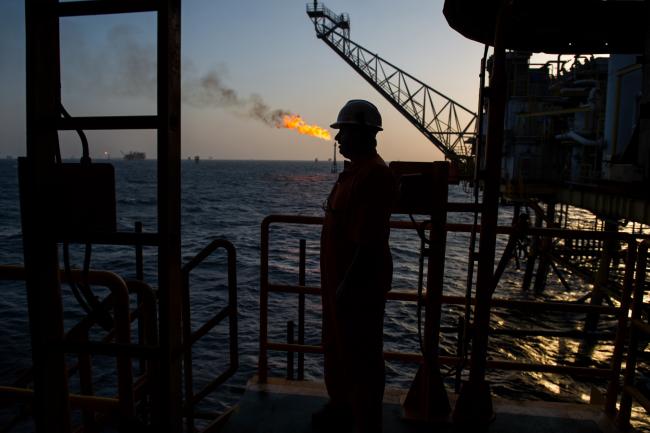(Bloomberg) -- U.S. President Donald Trump resumed his attacks on OPEC, saying the world is too fragile to handle a price hike and urging the cartel to “relax and take it easy.”
Trump’s war of words with the Organization of Petroleum Exporting Countries punctuated big price swings in 2018, as he pressured the group to keep the taps open to help consumers. His latest foray was no exception and crude erased gains in New York, sinking 1.6 percent to $56.33 a barrel.
The president’s intervention follows a price rally of about 25 percent this year due to production cuts from OPEC and its allies, diminishing fears about the economic impact of the U.S.-China trade war and Washington’s imposition of sanctions on Venezuelan oil shipments. Now pressure from Trump once again puts Saudi Arabia and the rest of OPEC in a bind.
“We might see a less aggressive stance on supply cuts from the Saudis -- this might stop them from cutting deeper,” said Giovanni Staunovo, an analyst at UBS Group AG in Zurich. “But I still think Saudi Arabia has the incentive to see higher oil prices, and deliver the cuts agreed in December,” when OPEC and its partners agreed to remove 1.2 million barrels a day.
NOPEC Risk
The risk to OPEC comes in the form of the so-called No Oil Producing and Exporting Cartels Act, or NOPEC, an act resurrected by U.S. lawmakers that proposes making the organization subject to the Sherman antitrust law, used more than a century ago to break up the oil empire of John Rockefeller.
Congressional support for the bill intensified last year as oil prices neared a four-year high, and Trump publicly blamed OPEC for high pump prices in the U.S. In the past, the White House has opposed the NOPEC legislation -- both George W. Bush and Barack Obama threatened to use their veto. OPEC’s concern now is that Trump may break with his predecessors, and angering him by not going “easy,” as he requested in his tweet, raises the stakes.
Trump, before becoming president, didn’t just support the NOPEC bill, he was a cheerleader for it. “We can start by suing OPEC for violating antitrust laws,” he wrote in his 2011 book “Time to Get Tough: Making America #1 Again.”
Whether by coincidence or design, Trump’s latest tweet comes on the eve of International Petroleum Week, which opens in London on Tuesday. The annual event gathers the who’s who of the oil market and industry for several days of conferences, deal-making and cocktail parties.
Defying Trump
The president last tweeted about OPEC on Dec. 5 -- the day before the organization met in Vienna -- calling on it to “keep oil flowing as is” rather than reduce output. However, the group defied his exhortation, announcing a production cut that was deeper than expected.
Saudi Arabia itself has slashed oil shipments to the U.S. to a four-week average of just 515,000 barrels a day, down almost 30 percent from a year ago and approaching the lowest level in a decade. Riyadh is targeting the American market in particular since U.S. weekly data has the power to move prices more strongly than that from other nations.
(Updates with analyst comment in fourth paragraph.)
